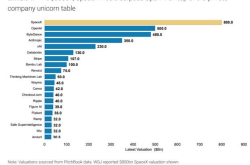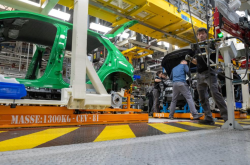After watching the Apple press conference, I believe that OS is the ultimate answer for AI Agent.
![]() 06/12 2024
06/12 2024
![]() 679
679
Early this morning, Apple held the WWDC conference. At this conference, Apple released its own artificial intelligence system called "Apple Intelligence". There was no grand narrative of AGI, and AI was fully implemented in specific application scenarios.
There's nothing much to say about the AI functions, but the biggest surprise is that we saw the tremendous potential of OS (operating system) in the era of artificial intelligence.
On one hand, Apple has implemented almost all AI tools for end-users at the system level, leaving little room for AI entrepreneurs to play.
On the other hand, Apple's OS system demonstrates an unparalleled ecological niche, not only controlling the power of model distribution but also connecting all personal data from its built-in software.
In the past, although ChatGPT's underlying model capabilities were sufficiently powerful, it was still far from being an AI Agent due to its disadvantages in terms of ecosystem and data. However, Apple has brought us a different possibility:
Mastering OS is equivalent to mastering software, models, and terminal data. It can integrate all personal device data and train an AI Agent to help users arrange everything.
At least from the current perspective, compared to the OpenAI large model, OS+hardware has a greater chance of evolving into the form of an AI Agent. In this regard, there will only be one type of future general-purpose Agent, which is the OS Agent, and the Agent opportunities for start-up companies will only exist in vertical industries.
/ 01 / The collective demise of AI tools
After watching Apple's WWDC conference, many people have a feeling that Apple has done nothing but also done everything.
Functionally speaking, Apple has enhanced almost all the native applications of the Apple system, such as cameras, calendars, browsers, and emails, with AI. But it seems like there's nothing new, and many AI startups are also doing these functions.
This may not seem like a big deal, but when you think about it carefully, there's actually a lot to say. Since the emergence of large models, many AI startups have focused on AI-ifying originally segmented functions, such as AI email, AI calendar, and so on.
Now, Apple has almost completed all the AI tools for end-users at the system level (text generation optimization, image generation, user data retrieval, action execution, related Q&A, etc.). For those that their own models cannot handle, they will connect to ChatGPT.
This completes an experience upgrade without replacement costs, leaving little room for AI entrepreneurs to play.
Not only that, but Apple has also opened APIs to allow more third-party developers to access this highly integrated system. Apple's message is clear:
You don't need to do these things anymore. If you must do them, then do them with us.
Ultimately, doing AI on the underlying operating system has significant advantages. It not only has all the deep-level IOS APP interfaces, enabling full mobilization of AI Agent capabilities, but also without any replacement costs.
/ 02 / Finding the possibility of a general-purpose Agent
Before the Apple press conference, many people had a judgment that large models were the "operating system" of the AI era. But at this conference, this view was proven wrong. At least so far, OS companies still remain the true and only "god" in this industrial chain, and their value may even be further magnified.
Today, Apple officially announced its collaboration with OpenAI but also stated that ChatGPT would not be the only large model company to collaborate with Apple. It plans to integrate multiple external AI models to avoid users having to switch between different apps.
The most significant meaning of this lies in clarifying the ecological niche of models and OS.
Large model vendors are merely model service providers, and OS companies like Apple ultimately control the power of model distribution. Don't look at OpenAI as the sole dominant player now. As model progress slows down and various models begin to converge in capabilities, OS companies' voice in model distribution will further increase.
The situation of OS advancing and models retreating is not only reflected in the ecological niche but also in the ownership of terminal






